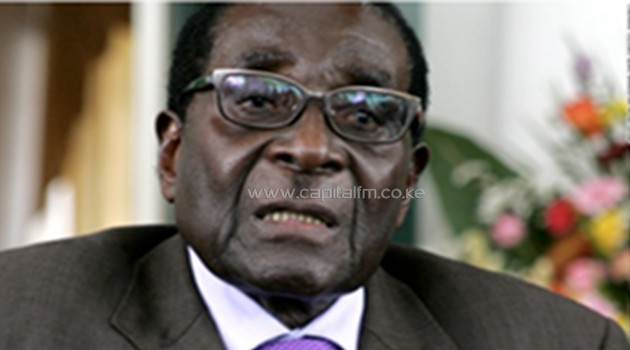Constitutional Court judge Luke Malaba admonished prosecutors against “prosecuting matters in which statements were uttered in drinking halls and other social places”, the Zimbabwe Lawyers for Human Rights said in a statement.
“It is important that the name of the president is not just dragged here to the courts unnecessarily. The attorney general should be careful not to allow prosecution when a person says something in a bar where people are just making statements while drunk,” the state-run Herald reported Malaba as saying.
Dozens of cases, including one involving a university lecturer who was prosecuted for labelling Mugabe “a rotten old donkey”, have been heard in the country’s courts.
Around 80 similar cases are still outstanding.
“The pursuit of such frivolous matters only serves to bring disrespect to the office of the president,” according to the Zimbabwe Lawyers for Human Rights.
The judge made the comments in a ruling in a case brought by Tendai Danga, who challenged the constitutionality of the law after being arrested two years ago during an argument with a policemen in a bar.
During the argument he said to the policeman: “Who is Mugabe? Fuck you, fuck the president.”
The same judge on Wednesday scrapped a law used to arrest journalists on allegations of publishing false news deemed to endanger state security.
“A law cannot be used to restrict the exercise of freedom of expression under the guise of protecting public order when what is protected is not public order,” he said.
“The very existence of a law authorising criminal prosecution for making a false statement…with the prospect of suffering a sentence of imprisonment up to 20 years, has an unconstitutionally chilling effect on the exercise of the right to freedom of expression,” said Malaba.
He made the ruling in a case in which two journalists from the privately-owned weekly Zimbabwe Independent challenged the so-called criminal law codification act.
Constantine Chimakure, news editor of the Zimbabwe Independent and editor Vincent Kahiya were arrested and charged in March 2009 following the publication of a story naming police and state security agents alleged to have abducted rights and opposition activists.
The Zimbabwe Union of Journalists (ZUJ) hailed the court’s decision because “this law had caused a lot of anguish and anxiety among journalists through unnecessary arrests and detentions”.
But union secretary general Foster Dongozi added that it recognises “that the establishment, that is (ruling party) ZANU-PF has not become angels overnight,” said .
“They are trying to rebrand themselves as a government of today and of the future but they are not likely to change.”
Zimbabwean media have operated under stringent rules for the last decade, with several newspapers forced to close and journalists have been harassed by the police.
Under the law passed in 2002, local journalists are compelled to register annually with a government media commission and risk prosecution if they write without accreditation or breach the media law.










































